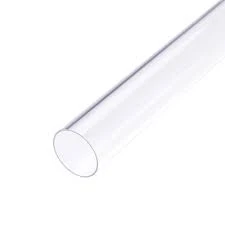Dec . 01, 2024 10:33 Back to list
High-Density Polyethylene Pipe in Black for Versatile Applications
Understanding Black HDPE Pipe A Comprehensive Overview
High-Density Polyethylene (HDPE) pipe is a versatile and widely used solution in various applications, renowned for its durability, flexibility, and resistance to corrosion. One of the most common types is the black HDPE pipe, which has become a popular choice for many industries, particularly in water distribution, irrigation, and industrial applications. This article will delve into the characteristics, benefits, and applications of black HDPE pipe.
Characteristics of Black HDPE Pipe
Black HDPE pipes are primarily made from high-density polyethylene, a thermoplastic polymer known for its high strength-to-density ratio. They are primarily produced using a continuous extrusion process that shapes the material into long, cylindrical forms. The black coloring often comes from added carbon black, which not only provides UV protection but also enhances the pipe's durability against environmental factors.
These pipes typically range in diameter, from small sizes suitable for residential irrigation systems to large diameters used in municipal water supplies. HDPE pipes can also be manufactured in various wall thicknesses to accommodate different pressure ratings and applications, ensuring they can handle high-pressure systems effectively.
Key Benefits
1. Durability and Longevity Black HDPE pipes are highly resistant to corrosion, chemicals, and environmental stressors. This makes them an ideal choice for underground applications where moisture and soil conditions may adversely affect other types of pipes.
2. Flexibility Unlike rigid piping materials, black HDPE pipes offer considerable flexibility, allowing them to adapt to changes in soil conditions and reducing the risk of damage during installation and operation. This makes them easier to install in various terrains.
Understanding Black HDPE Pipe A Comprehensive Overview
4. Low Friction Loss The smooth inner surface of black HDPE pipe minimizes friction loss, ensuring efficient fluid flow and reducing the energy required for pumping systems.
black hdpe pipe

5. Environmentally Friendly HDPE is recyclable and a more sustainable option compared to alternatives. Its long lifespan also means fewer replacements, resulting in less waste over time.
Applications
Black HDPE pipes are utilized across various industries due to their unique properties. Some of the common applications include
- Water Supply Systems Municipal water distribution systems often utilize black HDPE pipes for their durability and reliability, providing clean drinking water to communities.
- Agricultural Irrigation Farmers increasingly use HDPE pipes for irrigation due to their efficiency, lightweight nature, and ability to withstand soil stress, ensuring reliable water delivery to crops.
- Industrial Applications The chemical resistance of black HDPE pipes makes them suitable for transporting various industrial fluids. They are used in chemical processing, mining, and waste management applications.
- Drainage and Sewer Systems Black HDPE pipes are also used in drainage systems, helping to manage stormwater and sewage efficiently, preventing blockages and environmental contamination.
Conclusion
In conclusion, black HDPE pipes offer an array of benefits that make them an excellent choice for numerous applications across various industries. Their durability, flexibility, and lightweight nature provide significant advantages over traditional materials, driving their increasing adoption in projects worldwide. As sustainability becomes a focal point in infrastructure development, black HDPE pipes represent a forward-thinking solution that aligns with environmentally conscious practices. Whether for agricultural, industrial, or municipal use, black HDPE pipes are a reliable and effective option for modern piping needs.
-
High-Quality PPR Pipes and Fittings Durable ERA PPR & PVC PPR Solutions
NewsJul.08,2025
-
Black HDPE Cutting Board - Durable, Non-Porous & Food Safe HDPE Plastic Cutting Board
NewsJul.08,2025
-
High-Quality CPVC Panel Durable HDPE & PVC Panels Supplier
NewsJul.08,2025
-
Double PE Welding Rod Supplier - High Strength, Durable & Versatile Welding Solutions
NewsJul.07,2025
-
High-Quality PVC-O Pipe Supplier Durable 75mm PVC Pipe & Connections Leading PVC Pipe Company
NewsJul.07,2025
-
HDPE Drainage Pipe Supplier – Durable & Corrosion-Resistant Solutions
NewsJul.06,2025

